Financial abuse is an insidious form of domestic violence that often goes unnoticed, but its impact is profound. It occurs when one partner uses finances to control or exploit the other, often restricting access to bank accounts, racking up debt in the victim’s name, or forbidding employment. While this form of abuse can affect anyone, women from culturally and linguistically diverse (CALD) backgrounds are at a distinct disadvantage.
Ms Zaneta Mascarenhas MP, the Member for Swan, has been vocal about the urgent need to address financial abuse in CALD communities. Speaking on the matter, Ms Mascarenhas pointed out the challenges many women face, particularly those new to Australia or those who struggle with English. “For many women, language and cultural barriers make it almost impossible to understand financial documents, talk to banks, or seek help when they need it,” she said.
This language barrier is not just a minor inconvenience—it can significantly hinder a woman’s ability to recognise and escape financial abuse. “It’s not just about not knowing the language,” Ms Mascarenhas stressed. “Many women are unfamiliar with the Australian financial system altogether. They might not know how to open a bank account on their own or where to find financial support services. This makes them easy targets for a controlling partner.”
One of the major obstacles CALD women face is the stigma surrounding domestic violence, which Ms Mascarenhas believes plays a critical role in why many suffer in silence. “In some cultures, the stigma around domestic violence is so overwhelming that women feel they can’t speak up, even when their own well-being, or that of their children, is at stake. It’s a vicious cycle of silence and fear,” she explained.
Ms Mascarenhas further noted that this issue came to light during the national parliamentary inquiry into financial abuse, which began earlier this year. The inquiry has revealed the widespread nature of this form of abuse, but also how devastating its effects can be for CALD women. “The stories we’ve heard during the inquiry have been heart-breaking, particularly when it comes to CALD women. These women often don’t even know they have a bank account, let alone control over it. The powerlessness they experience is immense,” she said.
A national survey presented to the inquiry painted a stark picture: when asked if they knew whether they had a bank account, 16 out of 24 CALD women said they didn’t. “These are women who are financially disconnected from their own lives,” Ms Mascarenhas remarked. “It’s not just about economic hardship—it’s about stripping someone of their autonomy. That’s what financial abuse does.”
Ms Mascarenhas believes that tackling this issue requires a multi-faceted approach, particularly from the financial services sector. “Banks are often the first place victims turn to for help, so they have a unique opportunity to make a real difference. But we’re hearing that, for this to happen, financial institutions need to be equipped with the right tools,” she said.
She highlighted that one of the recommendations under consideration by the parliamentary committee is improved training for bank staff, particularly around the dynamics of financial abuse in CALD communities. “Bank staff need to be able to recognise the signs of financial abuse and offer support that is culturally appropriate and sensitive to the needs of these women,” Ms Mascarenhas explained.
She also emphasised the importance of partnerships with community organisations, like Reach Her and Professional Migrant Women’s Network. These organisations work directly with CALD women, providing critical insights into their experiences. “These groups understand the specific challenges that CALD women face and can help shape interventions that are both effective and culturally respectful,” Ms Mascarenhas said.
The parliamentary committee is still reviewing its findings, but Ms Mascarenhas believes that more data on the ethnicity and language of financial abuse victims is essential. “We need to gather better data so we can make informed decisions on how to allocate resources,” she urged. “More transparency in how we support multicultural communities is crucial if we are to make any real progress.”
As she sees it, addressing financial abuse among CALD women requires a thoughtful and compassionate strategy. “This is not a one-size-fits-all issue. The intersection of gender, culture, and economic exploitation is complex, and we need to be prepared to meet it with solutions that acknowledge that complexity,” she said.
For Ms Mascarenhas, the goal is clear: “We need to ensure that all women, no matter their background, can live free from financial control and abuse.”
Read the article online: CALD women face unique struggles in financial abuse crisis | The Indian Sun

